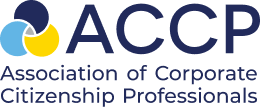STEM Career Preparation and the Role of Private-Public Partnerships for Education
Amy Nakamoto
General Manager, Social Impact
Discovery Education
Sustainable business practices involve multiple components, but the heart of any company is its people. Companies are – and need to be – moving towards a more employee-centric model that includes on-the-job training, new and innovative employee benefits, and respect for work-life balance. The Great Resignation spurred on by the pandemic illuminated the challenges and potentials for employee investments.
In our work at Discovery Education, as a Social Impact Partner to global organizations, we can listen and learn from executives across industries. One resounding theme? Businesses must diversify the employee pool to thoughtfully establish a sustainable and reliable network of team members.
By helping deliver on the “S” of ESG, we can together build a more sustainable and human-centered world by ensuring equity in education. That’s a big deal right now, considering that just in the industries of science, technology, engineering, and math (STEM), the Bureau of Labor Statistics reports an over 10% growth in STEM jobs in this next decade, a rate 3% faster than all other industries.
While there’s significant growth and potential, this growth doesn’t occur equitably—gender and racial gaps plague the STEM careers pipeline. According to the U.S. Census Bureau, women currently comprise 48% of all workers in the U.S. but represent only 27% of the STEM workforce. Additionally, in 2016 Pew Research found that Hispanic adults hold only 8% of the STEM workforce, while Black STEM employees constitute only 9% of STEM jobs, and these statistics haven’t changed since 2016.
The STEM Careers Coalition – the first-of-its-kind national STEM initiative powered by corporate leaders and anchored in schools by Discovery Education – helps address the so-called “leaky pipeline” in STEM careers. With an intentional focus on racial and gender equity, members of the Coalition connect real-world STEM professionals to students across the United States to engage and inspire them to pursue a career in STEM.
Students want to hear from leaders like them – it’s the simple but effective concept that if you can see it, you can be it. For example, Black leaders like science communications manager Nicole Epps at Procter & Gamble (P&G), Microsoft program manager Wadood Daoud, engineering project manager Antoine Sands at the American Society of Mechanical Engineers (ASME), reliability engineer Korede Oluwasuji at Stanley Black & Decker, and many more have inspired more than 5 million students across the United States already.
Immersing students in a world of diverse backgrounds, identities, and experiences also show that while STEM careers may be high paying, the pathway to success is complex and divergent. Right now, there are 30 million STEM jobs in the U.S. alone that require no bachelor’s degree but still pay $55,000 or more. Employers today need to connect to tomorrow’s employees by celebrating and showcasing their very own staff to help build a sustainable careers pipeline.

